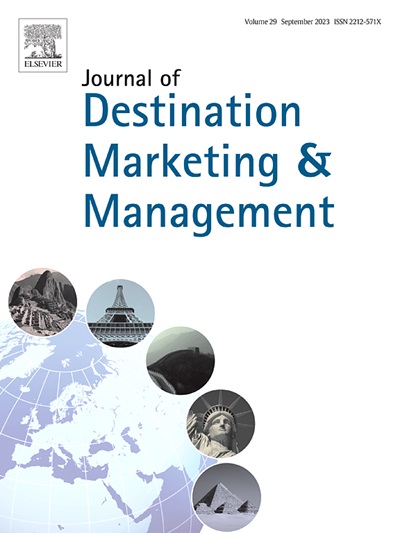智能化如何影响乡村旅游目的地基于顾客的品牌资产
IF 7.4
2区 管理学
Q1 HOSPITALITY, LEISURE, SPORT & TOURISM
引用次数: 0
摘要
近年来,通过智慧旅游目的地进行规划和管理引起了学术界的极大兴趣,其中包括技术、创新、可及性、可持续性和治理等方面。然而,到目前为止,研究主要集中在智慧旅游本身的概念化,以及旅游体验、技术或可持续性等方面,忽视了智慧旅游通过品牌资产发展竞争优势的能力。本文旨在研究智慧管理对目的地品牌资产的影响。为此,我们对 406 名游客和卡斯特罗波尔(西班牙北部一个被公认为智慧旅游目的地的农村市镇)的居民进行了调查,并对 PLS-SEM 模型进行了估计。结果表明,对目的地认知度和感知质量有直接的积极影响;此外,对目的地忠诚度的影响受感知质量和目的地形象的调节。这项研究强调,农村地区也可以从智能战略中受益。研究还强调,有必要采取负责任的可持续发展做法,让地方当局参与进来,并让居民参与进来,以创建更具吸引力的目的地品牌。本文章由计算机程序翻译,如有差异,请以英文原文为准。
How smartness affects customer-based brand equity in rural tourism destinations
In recent years, planning and management through smart destinations has attracted great academic interest by including the dimensions of technology, innovation, accessibility, sustainability and governance. However, until now, research has focused on the conceptualisation of smart tourism itself and on aspects such as the tourism experience, technology or sustainability, ignoring the ability of smart tourism to develop competitive advantages through brand equity. The aim of this paper is to study the effects of smart management on destination brand equity. To do this, a survey was conducted with 406 tourists and residents in Castropol, a rural municipality in northern Spain recognised as a smart destination, and a PLS-SEM model was estimated. The results show a direct positive impact on destination awareness and perceived quality; moreover, the effects on destination loyalty are mediated by perceived quality and destination image. This research highlights that rural areas can also benefit from smart strategies. It also emphasises the need to adopt responsible sustainability practices, involve local authorities and engage residents to create a more attractive destination brand.
求助全文
通过发布文献求助,成功后即可免费获取论文全文。
去求助
来源期刊
CiteScore
18.60
自引率
3.60%
发文量
46
审稿时长
43 days
期刊介绍:
The Journal of Destination Marketing & Management (JDMM) is an international journal that focuses on the study of tourist destinations, specifically their marketing and management. It aims to provide a critical understanding of all aspects of destination marketing and management, considering their unique contexts in terms of policy, planning, economics, geography, and history. The journal seeks to develop a strong theoretical foundation in this field by incorporating knowledge from various disciplinary approaches. Additionally, JDMM aims to promote critical thinking and innovation in destination marketing and management, expand the boundaries of knowledge, and serve as a platform for international idea exchange.

 求助内容:
求助内容: 应助结果提醒方式:
应助结果提醒方式:


